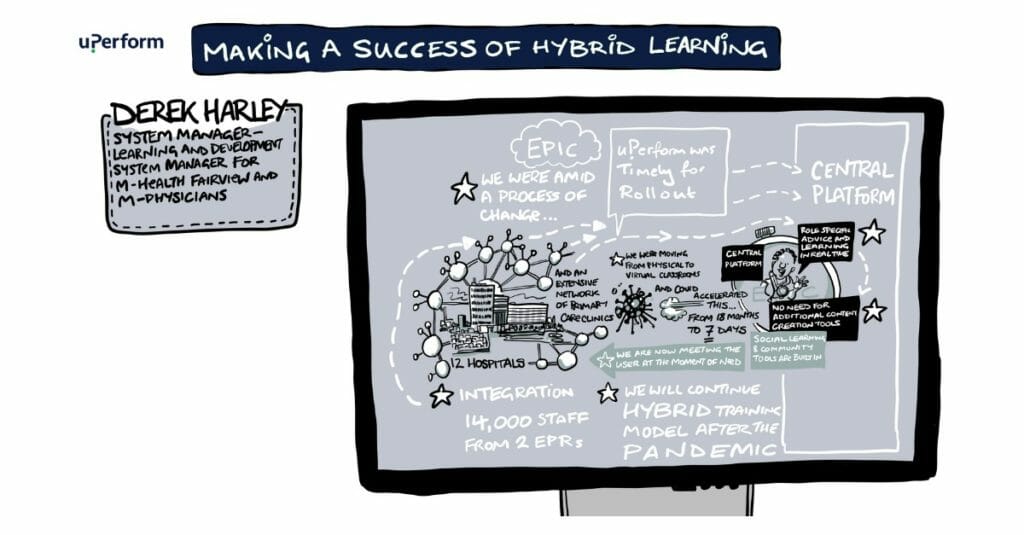When the COVID-19 pandemic rendered in-person training obsolete, health systems pivoted and proved that complex systems training, including the EHR/EPR, can be completed virtually.
David Kwo, EPR consultant, and Derek Harley, Learning and Development System Manager at M Health Fairview weigh in on the challenges of EPR training and the benefits digital training offers:
- Training can continue without interruption
- Clinicians have the flexibility to set their own training schedule
- The logistical restrictions associated with traditional training, such as classroom availability, are eliminated
“Implementing an EPR requires training that is suited to the needs of each staff member and is flexible to suit individual work practices and lifestyles. Each one of us has a different mix of work and personal constraints, so time-specific classroom training needs to be minimised whether on-site or virtual.” – David Kwo, EPR consultant
The Growth of Digital Training
Though traditional healthcare training programmes have been relied upon for many decades, they are not always the most timely or effective, creating logistical challenges for clinicians. As a result, many health systems have switched to remote training, discovering the benefits of taking a digital approach. Today, countless healthcare professionals are still being onboarded or trained using a digital or hybrid approach.
As remote training continues to grow in popularity and technology evolves, ensuring your staff has the tools and knowledge to through onboarding quickly is crucial. Training clinicians on the technology essential to your health system’s processes and procedures will give them the digital skills to be efficient and productive no matter where they are.
While new technology offers numerous benefits, lack of digital proficiency is one of the primary barriers to productivity for clinicians. Digital training is increasingly important as it helps individuals navigate virtual care, workflow changes and troubleshoot any technology glitches they might experience throughout the day.
The Benefits of Digital Training
Digital training is essential for a productive tech-savvy workforce. Training also comes with numerous benefits, including:
- Better talent retention: As technology continues to transform rapidly, many healthcare professionals are worried about falling behind in their changing industry. Investing in effective digital training allows your health system to attract motivated applicants and retain talented clinicians. Providing regular development opportunities for your existing staff is also a great way to earn loyalty.
- Higher efficiency: Using digital systems makes your health system more efficient, and training your staff ensures they use those systems effectively. Investing in your clinicians by providing them with digital training also creates a more skilled and motivated workforce, resulting in more efficient days.
- Competitive advantage: As a business owner, you’re competing with other hospitals nationwide. Providing your staff with quality digital training can give your health system a competitive edge over others in your industry.
- Higher productivity: When staff members know how to navigate your organization’s software and operate essential tools, they’re able to get more done. Digital training enables your clinicians to work faster and smarter.
Learn More About Solutions From uPerform Today
uPerform® is committed to helping health systems realise the full potential of their digital systems. Our easy-to-use learning platform, uPerform, allows us to work with large healthcare systems and businesses to help them get the most out of their EHR, HCM and ERP software. We help clinicians navigate their business’s digital systems with confidence to become more efficient and productive, whether training from home or in the office.
Contact us online to learn more about how uPerform can help your organisation.

